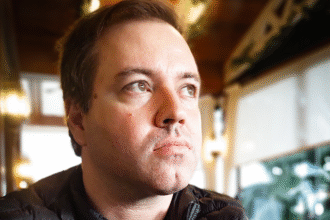Author who lived in the 60s launched a book that is now available both in physical and virtual format
An easy-to-read but striking story, translating the author’s style that crosses borders for good stories, in printed and e-book formats. From the first sentence of “O General was Nú”, writer Flávia Hartmann reveals the ugly and beautiful, the good and the bad side of each character, making her personalities clear. Her writing provokes and captures from the beginning, leaving in the end memories of a real time, of horrors suffered, but also of the reality of people who fought for their humanities and to lay bare what the general represented.
The setting is Rio de Janeiro. The time, the years of lead. In this context, a family of high social class experiences its small daily dramas permeated by a climate of violence that reveals itself in countless ways. A story of victims and perpetrators, in which fragile characters in a state of extreme suffering can become predators or silent victims. In O General was naked, the author, without issuing a value judgment, lays bare facts that society tries to hide, out of shame, fear, or conviction, as well as the secret nature of each person who, looking from the outside, is different from what they are. we imagine. But not only that. The narrative, mostly light, instigates us to get to know the daily life, the desires, the trajectory of the characters, whose life stories are composed of richness, translated into the meticulous details that are presented to us.
Flávia Hartmann’s novel takes up this past and very present moment of military influence dictating civilian life. To do so, it tells the story of a familiar military presence. The family unwanted by all of us, which disrupts fraternal bonds and alters paths. The General Was Naked is still a metaphor for what we know. And it brings the hallucinatory, cathartic ending we crave. Check out the interview!
Recently released, her work “O General was Nú”, at the same time that it proposes a dynamic reading, ends up presenting the public with a retelling of the years of lead through several different humanities. How did the idea for the book initially come about?
During the COVID pandemic, I was surprised by the denialist movements both in relation to vaccines and the existence of the dictatorship in Brazil. The idea was born out of this nuisance.
In the presentation of your book, you demonstrate your own style of writing, just like every author. In this case, how would you define your writing format and how far are you able to go to tell good stories?
I’m starting in literature. I wrote how I think, with lots of details and characters. It was a personal challenge. The second novel is going with this same proposal. I believe I am capable of going far to tell my stories.
Making an allusion to the Dakota Building, the book from the beginning defines the setting of the Seabra Building as ugly and beautiful at the same time. What was it like working with this issue of dual characteristics in the book?
During the writing of O General was Nu, I worked on the dualities: light x dark, good x bad, light x shadow, for example. For me there is not only one side.

The work ends up reporting a gray time, where many people went through suffering and struggle for humanity and for stripping the representativeness of the general. Does writing about a delicate time like this require greater care with veracity?
Yes, I couldn’t go wrong with the dates, the real facts. It required research, reading and a lot of revision. Worth it.
The story revolves around an upper-class family who experience their problems in a climate of violence at the time. How was the process of building these characters?
They ended up speaking for themselves. As if I gave these people a voice. There was one night that I woke up with the feeling of the General sitting on my bed, saying that he wanted to talk. I went to the computer and he told his part. I felt at the end of the process, a good listener.
One of the great potentials of literature is precisely that of being able to transport its readers to other worlds through imagination and interpretation. In the case of the experience of writing a book like this, did you ever imagine what it would be like to live in the years of lead?
I lived this time. I’m from 1956 and I know how true, hard and unacceptable this was. Asking to relive this period is beyond my understanding. I wrote this book to say that it is enough that we will no longer allow the Dictatorship in Brazil.

The book is currently available in print and e-book format in stores. What has it been like to see the reception from the public and what are your tips for readers to be able to interpret the message you wanted to convey in the work?
So far, only two people have expressed discomfort with him: one because of his political position and the other because he identifies with the character Tereza Cristina. Most read in one sitting. I suggest reading without high expectations and with an open mind. Attention is necessary, since we are talking about many characters. Mainly that they believe that despite being a fictional story, it is about a recent time in our history that was shameful and we don’t need it anymore.
Follow Flávia Hartmann on Instagram





